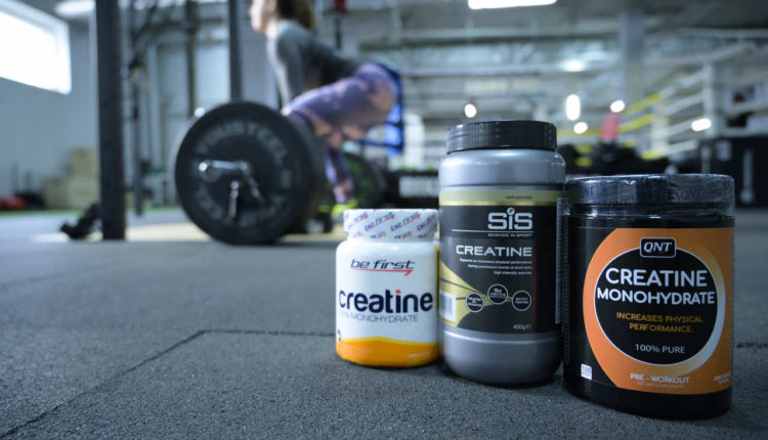Contents
Building muscle doesn’t happen overnight. However, if you can’t see an obvious difference between a month to month of weight training and eating right, there must be something that you’re doing wrong. It’s good to know that the human body can build around 227g of muscle per week, so aiming for more than that will only result in gaining more weight. Whether your main goal is aesthetics or strength, there are a few foolproof ways you can improve your routine to see results faster.
Muscle Building Supplements
The first thing you should look at is your day-to-day nutrition. To gain muscle you need to significantly increase your calory intake, especially if you have a lean physique. That being said, the quality of the food you consume is just as important as the quantity. Everyday meal preparation can be a challenging task in today’s society. If you’re too caught up between work, social life and going to the gym, you can try to prepare your meals the day before or opt for ready meals instead.
For weight gain – trainers recommend 5 to 6 high-calory meals a day, which can be hard to achieve. This is why weight gainer supplements should be an essential part of your diet. Not only do they supply your body with a high number of proteins and carbohydrates, but they also contain vitamins, minerals and creatine – to increase your energy levels.

The Importance of Proteins and Carbs
Proteins are the main building blocks of your muscles. Studies show that they not only help you increase muscle mass, but also helps you maintain it. Muscle deterioration is an inevitable process as you age, in some cases resulting in sarcopenia. Consuming the right amount of protein helps you stay fit as you age and maintain healthy muscles during weight loss. In addition, they lower blood pressure and bad cholesterol while boosting the metabolism and increasing fat burning.
Carbohydrates are another important food group for healthy muscles. They’re partially converted to glycogen – an energy form stored in muscles that powers your workouts. Whole grains, cereals, fruits and vegetables are often insufficient in supplying you with enough carbs for healthy weight gain. This is why supplements for weight gain are packed with a large percentage of carbohydrates.
Why is Creatine a Good Supplement?
Creatine is among the most researched supplements for building muscle. Although it’s found naturally in your cells and certain foods, it’s more beneficial when taken as a supplement. Creatine boosts energy production in the body, which, according to research, improves exercise performance and muscle gain over time. From the several different types available – creatine monohydrate is proven to be the safest and most effective.
Quality supplements for weight gain have natural flavours and don’t contain sugar at all. They’re packed with nutrients and some even reach above 1200 calories per serving, which means you can consume them as a meal replacement.

Are Weight Gaining Supplements Safe?
Yes – weight gainers are safe to consume, and as long as you stick to the recommended daily doses, they will help you increase your energy and muscle mass. Some potential side effects are digestive issues and allergic reactions, so, as with any other product, make sure to carefully read the label before purchasing.
Improve Your Workout
Assuming you have your diet in check and you take the recommended doses of supplements daily, the next thing you should look to improve is your workout. Training for weight loss differs from hypertrophy (muscle growing) training. Contrary to popular belief, you can achieve hypertrophy with lighter weights as well. What you need to pay attention to is increasing the number of repetitions. Trainers recommend performing each lift for 3 to 6 sets of 10 to 20 reps.
I’m sure your smartphone looks very tempting when you reach a rest interval. You open social media and before you know it – you’ve been staring at the screen for 15 minutes. Make sure you only touch your phone to set a 30–90-second timer, which is the ideal rest period for hypertrophy. This encourages a quick release of muscle-building hormones such as testosterone and human growth hormone, while making sure that you fatigue your muscles.
Lastly, pay attention to the way you’re lifting your weights. As opposed to weight loss, hypertrophy requires that you do your exercises as slow as you can. When lifting weight, there’s an eccentric (easy) and concentric (hard) phase. For example – lowering into a squat can be considered as an eccentric action, while returning to standing is a concentric one. Trainers advise that to get the most out of your hypertrophy workout, you should focus more on the eccentric phase. You can achieve this by slowing down the eccentric phase or by integrating eccentric-only variations into your workout.

The Importance of Rest
The human body is not a machine. Even if you feel motivated and able to endure longer and more intense exercises, you should keep in mind that they might cause you problems in the long run. A sore muscle after a workout is completely normal, but persistent soreness means that the muscle hasn’t recovered from previous workouts and needs a break. Too much exercise can cause fatigue, lowered performance, and disbalance in hormones like serotonin and cortisol, which can lead to irritability and mood swings.
Having a rest day once in a while results in healthier muscles, better mood and can even improve the quality of your sleep. For muscle building, try to rotate the muscles worked to avoid overworking them. For example, assign one day as leg day, the next as chest day, and so on.
Bottom Line
Muscle building (hypertrophy) takes a lot of time and patience. Although it requires a high daily calory intake, this doesn’t mean you should indulge in unhealthy fast food. Try to consume 5 to 6 healthy high calory meals and include your daily dosage of weight gain supplements to improve your workout performance. Increase the number of reps and slow down each exercise, while focusing on the eccentric phase. Lastly, take enough time to rest each muscle group to avoid fatigue and injuries.

